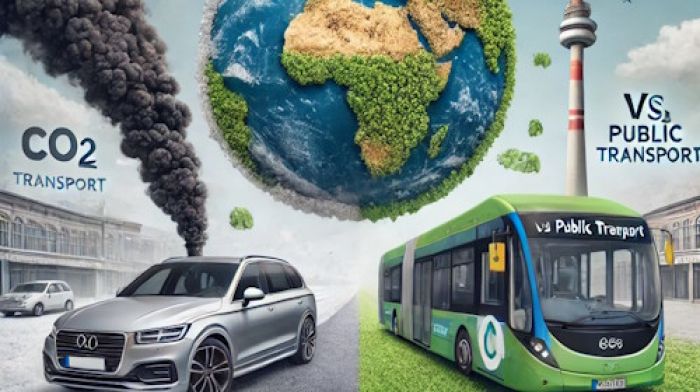The new Honda CR-V keeps selling like crazy. Although we've never been fans of Honda vehicles, we've seen the CR-V as one of the leaders in the compact SUV niche. But recently we accidentally saw the trims and engines available now and we were shocked. These downsizers just don't give you any choice now - if you want the new CR-V, you will have to put up with this extra small engine under the hood.
Today, we'll tell you about the 1.5L L15BE turbo engine that powers the new 2022 Honda CR-V. We'll look at its longevity and technical specs to make sure it's worth your money. Also, we'll look at all kinds of problems (and believe us, there will be plenty of them to talk about) and the reasons why they appear.

Key features and my opinion about the engine
- Production years:2017-now
- Average lifespan of L15BE:160,000-180,000
- Fuel supply type:direct injection
- Power range:190-192 hp
- Fuel efficiency:good
- Engine block material:aluminum
- Engine reliability score:medium
- The most common problems:ignition system problems, turbocharger issues, extensive wear due to aggressive use.
Main features of the 1.5L engine in the 2022 CR-V
Honda has developed so many engines and has used a lot of them in different countries and we had to spend a while till we actually learned enough to write this article. So, we are talking today about the 2016-2022 (fifth generation) Honda CR-V. In 2023, Honda offers the new generation for buyers but everything you read in this article will still be true for it because the base engine will be the same.
The 1.5L turbocharged engine was the only option you could buy in 2022 in the Honda CR-V. The only option for quite a big SUV which we imagine should have the V6 engine under the hood. And it's frustrating because those overcharged small-displacement engines don't promise you anything good.
Here's what you should know about this engine:
- this is a 4-cylinder engine coded L15BE that is also used in the Accord since 2018;
- the engine is turbocharged, but still, the displacement of 1.5 liters seems to be too small for the CR-V;
- the engine offers solid 190 horsepower and 179 lb-ft of torque which is enough, but the horsepower-to-liter ratio is insanely high;
- the engine rotates like crazy to ensure you don't think it's too weak when you drive the vehicle;
- the engine comes exclusively with the CVT transmission which is more or less durable but still not very reliable;
- Honda had to use a very efficient turbocharger and this is what causes our concerns;
- we believe the company expects too much from this engine;
- one good thing is that you can expect 28 mpg in the city and about 36 mpg on highways which is really good for the CR-V.
And the owners' reports actually prove that we are right. The overcharged engine is not going to live much longer than the CVT transmission and this forms an awful blend of two not-really-durable units under the hood of your CR-V. They started using these engines in 2017 and since then, many people reported awful problems that led to the death of this engine.
We should tell you that we expected this engine to act much worse when we first got into the car. Actually, it's not that bad in terms of driving emotions. The CR-V is pretty quick and dynamic, you will not hear the engine roaring at high revs thanks to wonderful soundproofing. But it rotates to 4000 RPM even if you just slightly touch the acceleration pedal. So, yeah, it's going to die really fast.
What about the durability of the Honda CR-V 1.5L engine?
We won't try to comfort you, the L15BE engine is not durable. We've seen guys reporting its death at 70,000 miles, and this wasn't just a single case. The engine is overcharged, it has too much power for this displacement, and it revs up like crazy to move this big vehicle. These factors lead to quick wear and tear and multiply minor problems that influence the way this engine deals with mileage and years.
We would say that the average lifespan of the CR-V 1.5L engine should be 120,000 to 130,000 miles until you get the first serious problem. That's better than we expected but still, it's not a lot for the SUV that was once thought to be the most reliable compact SUV on the market.
Also, you should remember that at 120,000 miles the CVT will ask for replacement or very expensive repair. So, owning the Honda CR-V with the 1.5L Turbo engine after it reaches 100,000 miles is like a lottery that you are going to lose anyway.
What justifies this engine is that up to 100K miles you aren't likely to get a lot of problems unless you forget to change the oil and filters or try to race with other cars on the road.
What are some of the common problems with the 1.5L Honda CR-V engine?
We hope you are still reading the article and still willing to buy the CR-V which is, in our opinion, one of the most decent compact SUVs out there. Yes, its engines were much better years ago. But we slowly come to that day when manufacturers will ban gas or diesel engines and will only make EVs. So, the 1.5L turbo engine may be the last chance for you to catch that last train of gasoline Honda SUVs.
Here are some problems we've found common with this engine:
1. Oil dilution issues
This is the first problem that you see when you open forums about this vehicle. Oil dilution is a pretty bad issue because it can kill the turbocharger and the whole engine in months. So, in, short, the problem is that some unburnt fuel leaks into the engine oil pan and dilutes the oil changing its texture and contents.
It means such oil will not be able to maintain the optimal work of the turbocharger as well as of the whole engine. If the problem goes too far, the engine may just break or stuck because of poorly oiled parts. This is the synonym for engine replacement because repairing the 1.5L turbo engine is a more or less bad idea.
2. Carbon buildup
Well, we still write about this issue as an individual problem. But all direct-injection engines will have this issue. We just think that once every 30,000 miles you should have the intake and exhaust manifolds cleaned. Valves can gather some buildup and it will result in poor performance of the vehicle. But in the end, this is not a very big and fatal problem.
3. Fast wear of spark plugs
Yes, you will need to buy new spark plugs pretty often. It means you will have to spend some money because accessories and parts for this engine cost a fortune. But every turbocharged engine (especially the one with the direct injection) eats those spark plugs like crazy. They also get some buildups and stop working.
Cleaning them or trying to prolong their lives is not really a good idea. So, just get ready to buy a new set of spark plugs every 15-20 thousand miles or something like that.
4. Turbocharger failures
We've included this just because a lot of owners report this problem. But we know why it happens. You should use your Honda CR-V exactly the way it's made for. If you try to drive at 120 mph for a long time or race with sports vehicles, you will kill the turbocharger by simply overheating it.
This is the engine for just driving. Yes, you can drive actively, but not aggressively. Try keeping your RPMs under 3000 and you'll be happy with how long the turbocharger lives in your CR-V. In other ways, it will die pretty often and need expensive repair.
What should you do to make the 1.5L Honda CR-V engine live longer?
Unfortunately, there is nothing much you can do. This engine will still die at 130,000 miles, on average, and will leave you with a pretty good car but no engine in it. The best solution, in this case, is to replace the engine. But you should also look at the CVT. The transmission should also be more or less dead at this mileage. So, restoring your vehicle may cost a little more than the whole car should cost on the market.
Our small recommendations to prolong the life of your 1.5L CR-V L15BE engine are as follows:
- change oil and filters even more often than the manufacturer recommends;
- check for gasoline smell for oil every time you check the oil level;
- clean the engine from buildups every 30,000 miles or more often;
- use good parts and fluids when you service the vehicle;
- never race this car on high RPMs for a long time;
- be careful with towing - better forget about towing in this vehicle.
But still, we like the way this engine drives and we would still consider the new Honda CR-V among other options if we needed to buy a compact SUV now. Although, a closer look at problems may make you suffer a little and change your mind.
About the authors
The CarAraC research team is composed of seasoned auto mechanics and automotive industry professionals, including individuals with advanced degrees and certifications in their field. Our team members boast prestigious credentials, reflecting their extensive knowledge and skills. These qualifications include: IMI: Institute of the Motor Industry, ASE-Certified Master Automobile Technicians; Coventry University, Graduate of MA in Automotive Journalism; Politecnico di Torino, Italy, MS Automotive Engineering; Ss. Cyril and Methodius University in Skopje, Mechanical University in Skopje; TOC Automotive College; DHA Suffa University, Department of Mechanical Engineering






Add comment